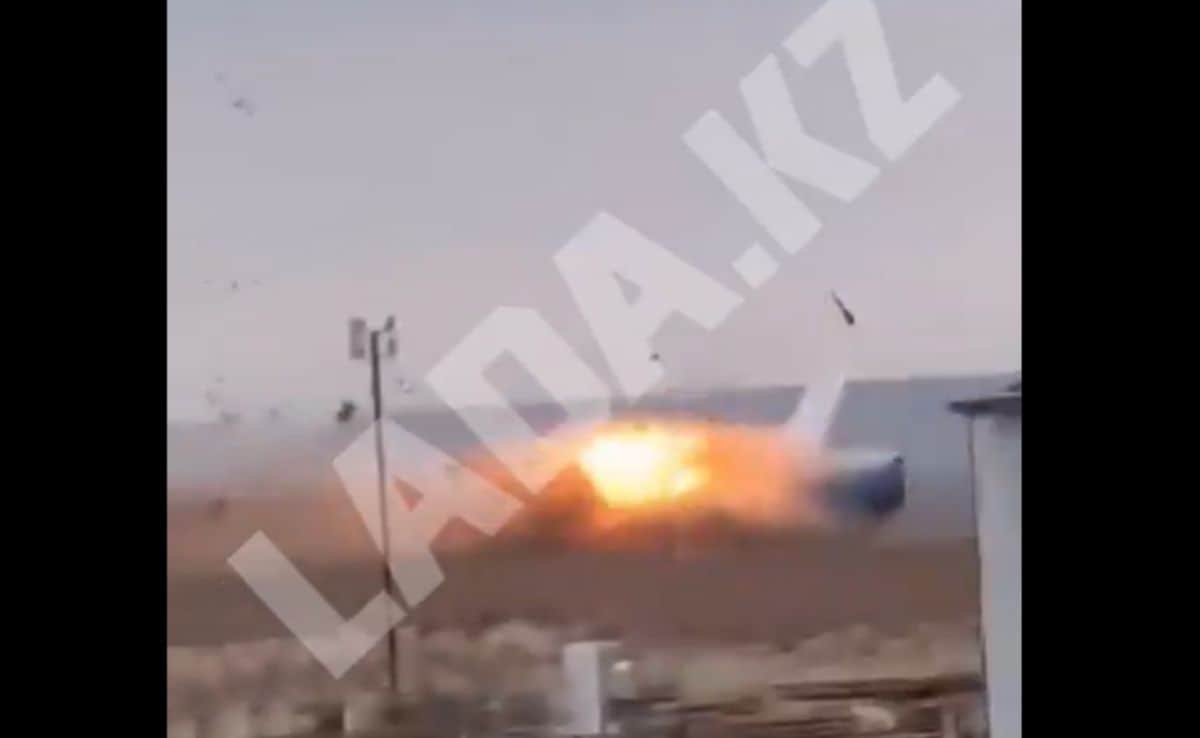
A passenger plane from Azerbaijan Airlines burst into flames after crashing near the Aktau city of Kazakhstan, the country’s Emergencies Ministry said.
The Embraer 190 plane was en route from Azerbaijan’s capital Baku to Grzony in Russia’s Chechnya but was rerouted due to fog in Grozny. Sixty-two passengers were onboard the plane along with five crew members. Twenty five people survived the crash and have been taken to the hospital, including five in intensive care.
A video showed the aircraft rapidly losing altitude and started banking to its right. It crashed into an open field and burst into flames.
BREAKING: Azerbaijan Airlines flight traveling from Baku to Grozny crashes in Aktau, Kazakhstan, after reportedly requesting an emergency landing pic.twitter.com/hB5toqEFe2
— RT (@RT_com) December 25, 2024
The crash took place near the airport. The plane reportedly took several circles, requesting an emergency landing, but it stalled and crashed.
“The Embraer 190 aircraft operated by Azerbaijan Airlines, flight numbered J2-8243 on the Baku-Grozny route, made an emergency landing approximately 3 kilometres near the city of Aktau. Additional information regarding the incident will be provided to the public,” Azerbaijan airlines said.
Visuals showed ambulances at the crash site and some people were being rescued and deboarding from the emergency exit located at the rear end of the aircraft. The aircraft registration number, 4K-AZ65, visible in the video matches the data available on FlightRadar24.
Data from the online flight tracking website, FlightRadar24, showed the aircraft flying over the Caspian Sea and heading towards its destination, in Chechnya. The aircraft entered the territorial borders of Russia and started circling near the airport, requesting an emergency landing. At 6:28 am UTC (11:58 am), the flight crashed near the Caspian Sea shore, a few kilometres away from the airport. FlightRadar24 said the aircraft was exposed to “strong GPS jamming, which made the aircraft transmit bad ADS-B data.”
Flight #J28243 that crashed near Aktau Airport in Kazakhstan is an Azerbaijan Airlines Embraer ERJ-190 with registration 4K-AZ65.#J28243 took off from Baku at 03:55 UTC time and was flying to Grozny. The aircraft was exposed to strong GPS jamming which made the aircraft… pic.twitter.com/rM1Q0jmMPt
— Flightradar24 (@flightradar24) December 25, 2024
Automatic Dependent Surveillance-Broadcast (ADS-B) is an advanced surveillance technology that combines an aircraft’s positioning source, aircraft avionics, and ground infrastructure to create an accurate surveillance interface between aircraft and Air Traffic Control.
More details to follow.



